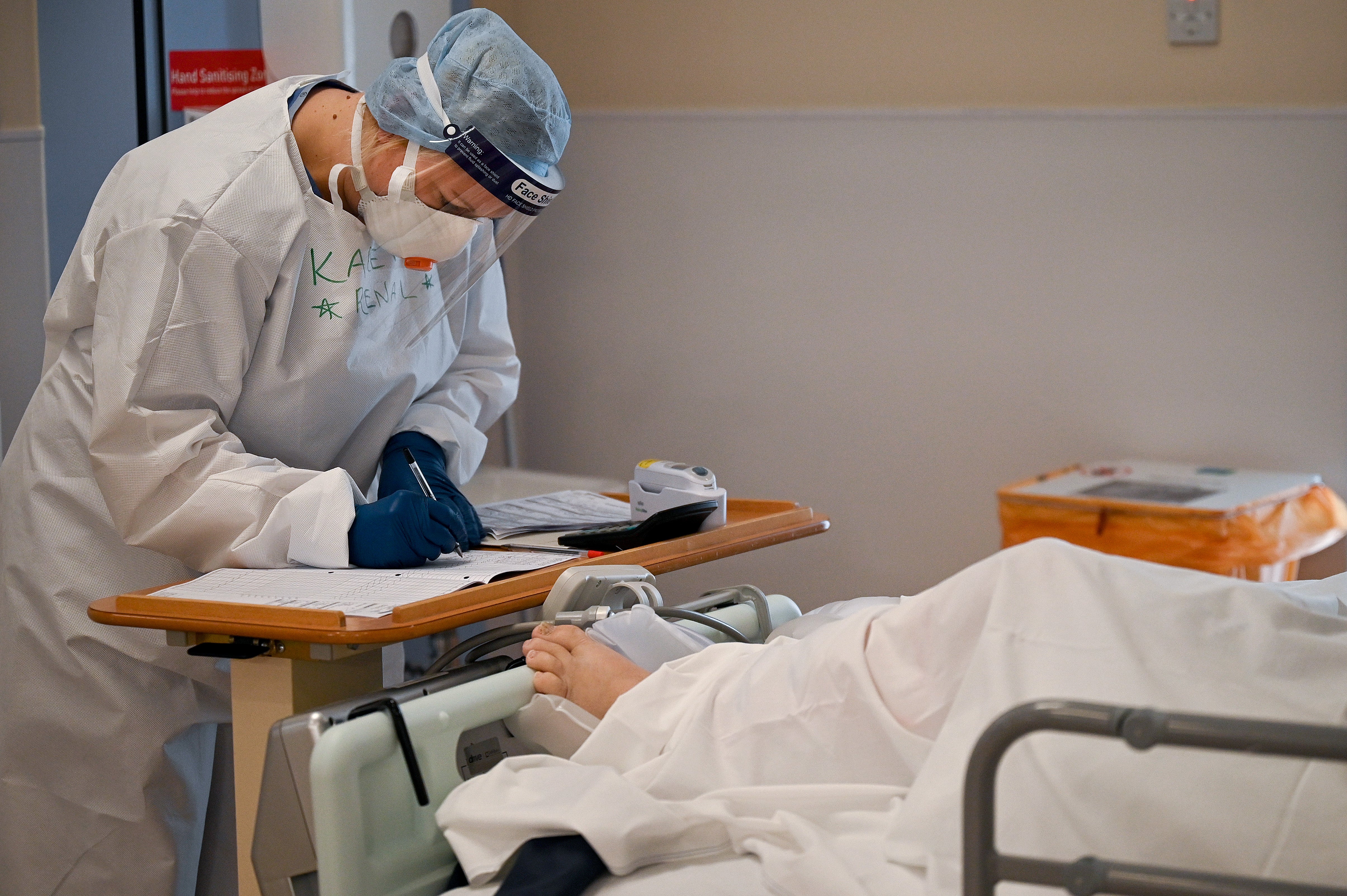Woman left brain-damaged and paralysed by Covid should be allowed to die, judge rules
The judge described the impact of Covid on the woman as ‘brutal’

Your support helps us to tell the story
From reproductive rights to climate change to Big Tech, The Independent is on the ground when the story is developing. Whether it's investigating the financials of Elon Musk's pro-Trump PAC or producing our latest documentary, 'The A Word', which shines a light on the American women fighting for reproductive rights, we know how important it is to parse out the facts from the messaging.
At such a critical moment in US history, we need reporters on the ground. Your donation allows us to keep sending journalists to speak to both sides of the story.
The Independent is trusted by Americans across the entire political spectrum. And unlike many other quality news outlets, we choose not to lock Americans out of our reporting and analysis with paywalls. We believe quality journalism should be available to everyone, paid for by those who can afford it.
Your support makes all the difference.A grandmother left brain-damaged and paralysed from the neck down after contracting Covid should be allowed to die, a judge has ruled.
The woman in her 50s, who was overweight and had underlying health conditions, was admitted to hospital with symptoms of Covid in late 2020.
Specialists treating her at Addenbrooke’s Hospital, Cambridge, said her life-support treatment should end but her family disagreed and wanted to give her more time.
She is unable to speak and is on a ventilator.
Mr Justice Hayden considered the evidence at a trial in the Court of Protection where he heard from both doctors and the patient’s children and sister, before concluding the treatment should stop by the end of October.
He heard how specialists ruled the woman was the “most complicated” Covid patient in the world with “profound complications”.
They said the woman’s case appeared to be “unique”, as she was “almost entirely paralysed” and had “severe” cognitive impairment.
Doctors said they were unable to make “any aspect of her condition better”, and that life-support treatment was causing her distress and adding to her “burden”.
They estimated she only had a matter of months left to live, and those months would be better spent if she were moved to a palliative care regime where she could die peacefully surrounded by loved ones.
Specialists believed there were two options: they could continue treating the woman in an intensive care unit until she “succumbs to a fatal infection”, or she could be moved to a “calm, quiet and private place” where her life could end with her family by her side.
Mr Judge Hayden ruled the ventilation should stop by the end of October, and said it would be in the patient’s -referred to as AH - best interest to move “to a place which protects her privacy and affords her greater rest.”
Having visited the woman in hospital, he described the impact of Covid on her as “brutal”.
He said: "I have been told, authoritatively, that in terms of the neurological impact and complications AH is ‘the most complex Covid patient in the world’.
"The impact of this virus on AH has created an invidious dilemma both for her family and for the professionals caring for her."
Mr Judge Hayden said he did not reach his conclusion easily, and that neither of the options were “devoid of difficulty”.
However, the ultimate decision was chosen with the women’s best interests in mind.
Additional reporting by PA